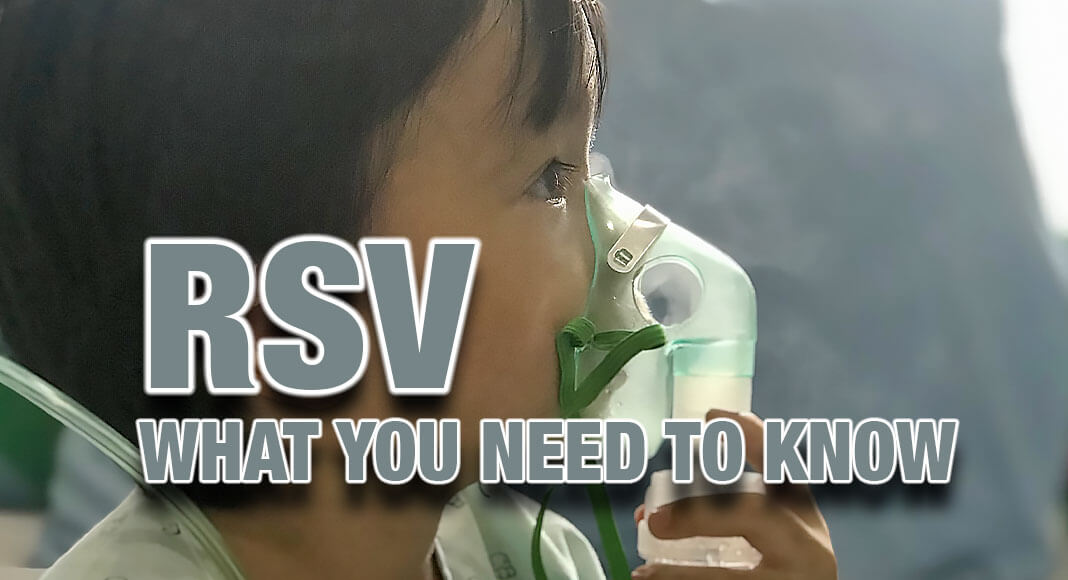
Mega Doctor News
CDC – RSV can be dangerous for some infants and young children. Each year in the United States, an estimated 58,000 children younger than 5 years old are hospitalized due to RSV infection. Those at greatest risk for severe illness from RSV include:
- Premature infants
- Very young infants, especially those 6 months and younger
- Children younger than 2 years old with chronic lung disease or congenital (present from birth) heart disease
- Children with weakened immune systems
- Children who have neuromuscular disorders, including those who have difficulty swallowing or clearing mucus secretions
Virtually all children get an RSV infection by the time they are 2 years old. Most of the time RSV will cause a mild, cold-like illness, but it can also cause severe illness such as
- Bronchiolitis (inflammation of the small airways in the lung)
- Pneumonia (infection of the lungs)
One to two out of every 100 children younger than 6 months of age with RSV infection may need to be hospitalized. Those who are hospitalized may require oxygen, intubation, and/or mechanical ventilation (help with breathing). Most improve with this type of supportive care and are discharged in a few days.
Early Symptoms of RSV
RSV may not be severe when it first starts. However, it can become more severe a few days into the illness. Early symptoms of RSV may include
- Runny nose
- Decrease in appetite
- Cough, which may progress to wheezing
RSV in Very Young Infants
Infants who get an RSV infection almost always show symptoms. This is different from adults who can sometimes get RSV infections and not have symptoms. In very young infants (less than 6 months old), the only symptoms of RSV infection may be
- Irritability
- Decreased activity
- Decreased appetite
- Apnea (pauses while breathing)
Fever may not always occur with RSV infections.
What you should do if your child is at high risk for severe RSV infection
RSV season occurs each year in most regions of the U.S. during fall, winter, and spring. If you have contact with an infant or young child, especially those who were born prematurely, are very young, have chronic lung or heart disease or a weakened immune system, you should take extra care to keep the infant healthy by doing the following:
- Wash your hands often
Wash your hands often with soap and water for at least 20 seconds, and help young children do the same. If soap and water are not available, use an alcohol-based hand sanitizer. Washing your hands will help protect you from germs. - Keep your hands off your face
Avoid touching your eyes, nose, and mouth with unwashed hands. Germs spread this way. - Avoid close contact with sick people
Avoid close contact, such as kissing, and sharing cups or eating utensils with people who have cold-like symptoms. - Cover your coughs and sneezes
Cover your mouth and nose with a tissue or your upper shirt sleeve when coughing or sneezing. Throw the tissue in the trash afterward. - Clean and disinfect surfaces
Clean and disinfect surfaces and objects that people frequently touch, such as toys, doorknobs, and mobile devices. When people infected with RSV touch surfaces and objects, they can leave behind germs. Also, when they cough or sneeze, droplets containing germs can land on surfaces and objects. - Stay home when you are sick
If possible, stay home from work, school, and public areas when you are sick. This will help protect others from catching your illness.
Call your healthcare provider if you or your child is having difficulty breathing, not drinking enough fluids, or experiencing worsening symptoms.
Scientists are working to develop vaccines
There is no vaccine yet to prevent RSV infection, but scientists are working hard to develop one. And there is a medicine that can help protect some babies at high risk for severe RSV disease. Healthcare providers usually give this medicine (called palivizumab) to premature infants and young children with certain heart and lung conditions as a series of monthly shots during RSV season. If you are concerned about your child’s risk for severe RSV infection, talk to your child’s healthcare provider.
Information Source: CDC










